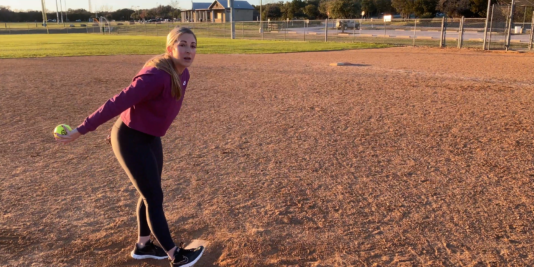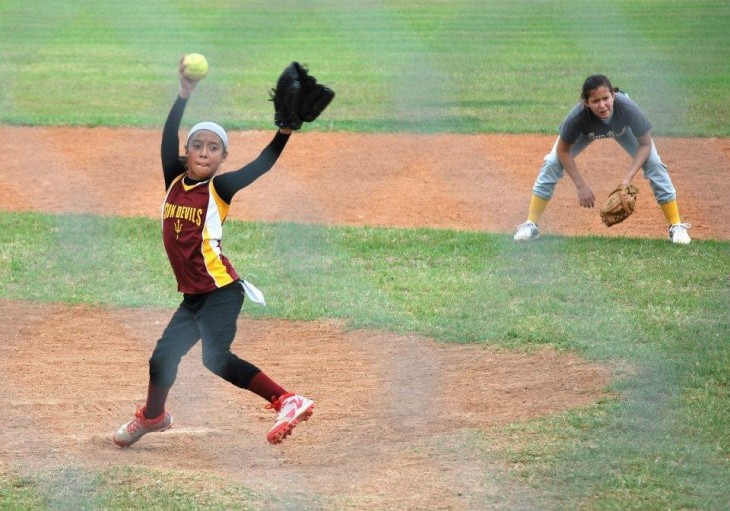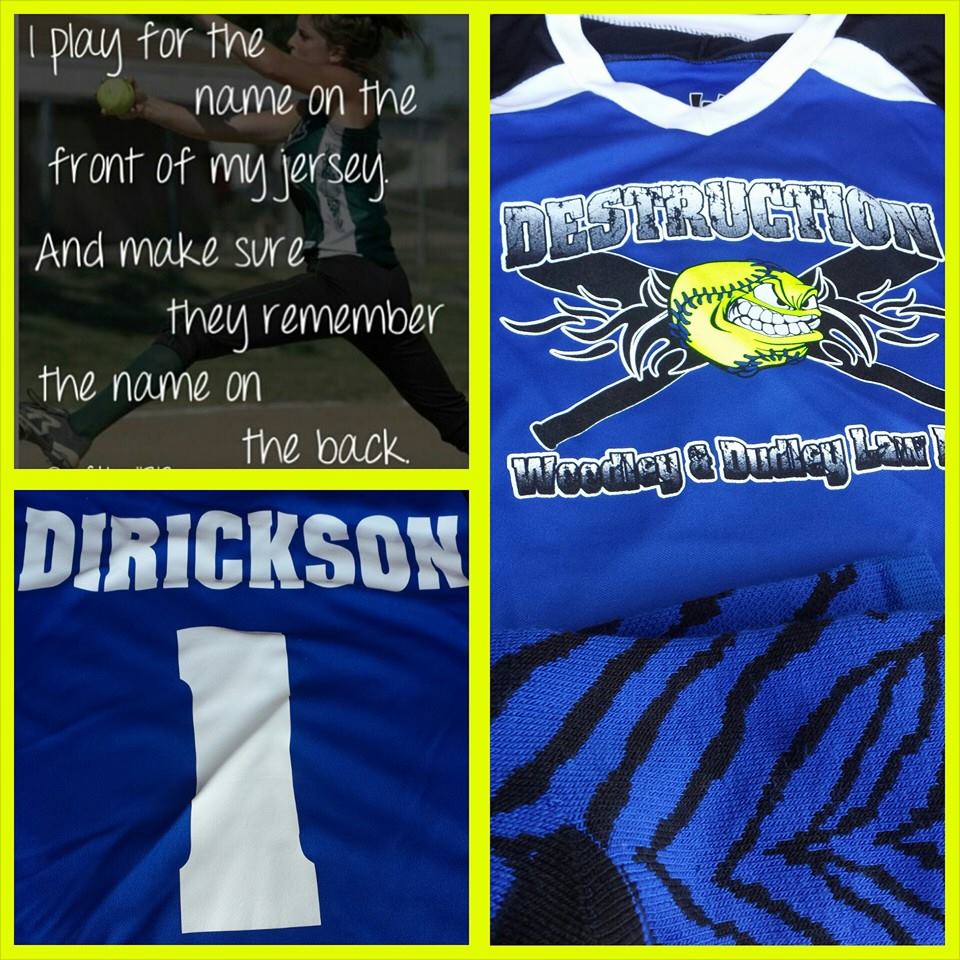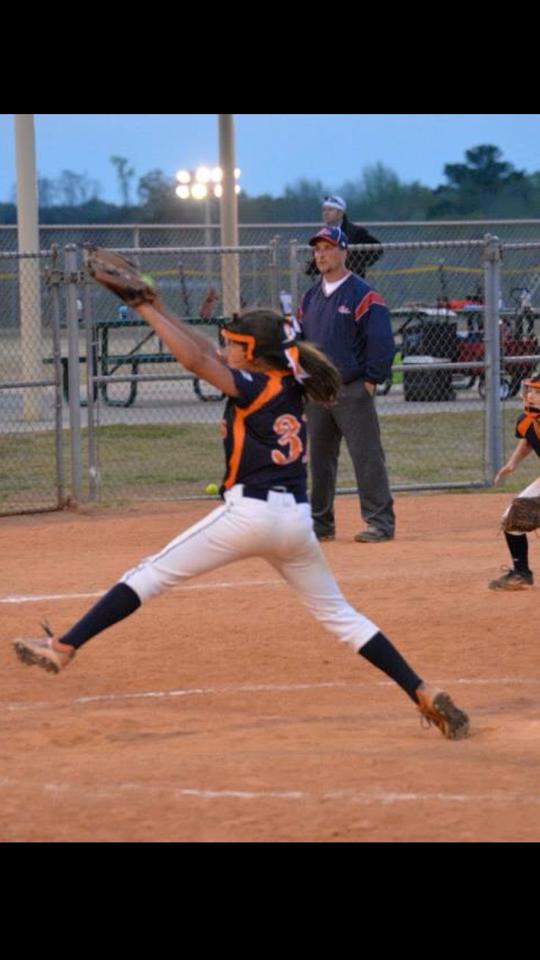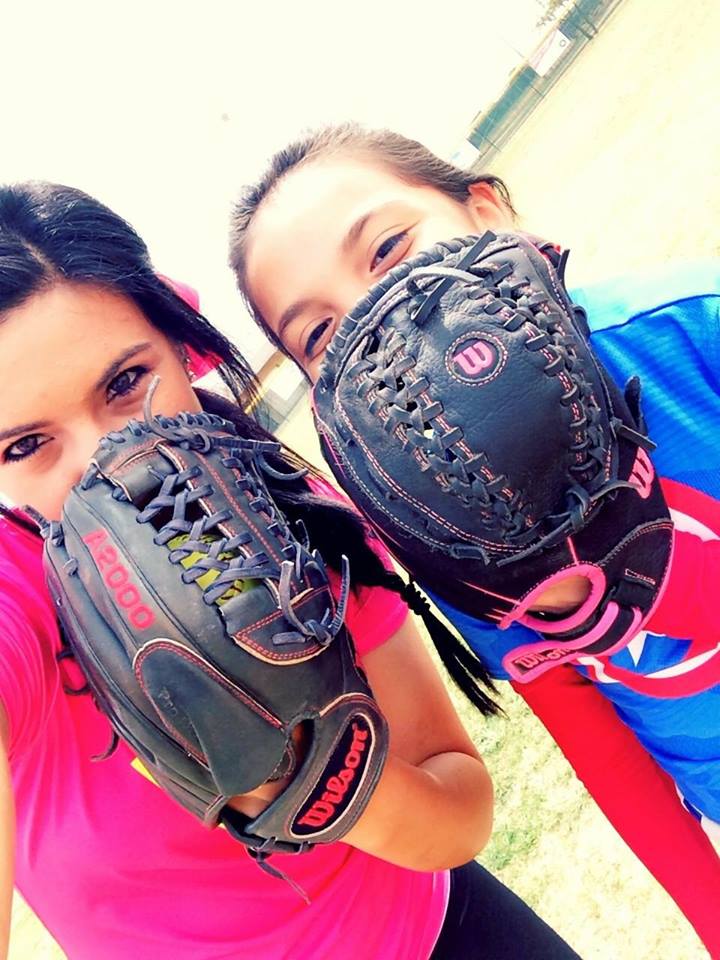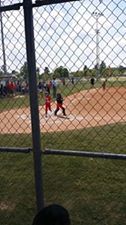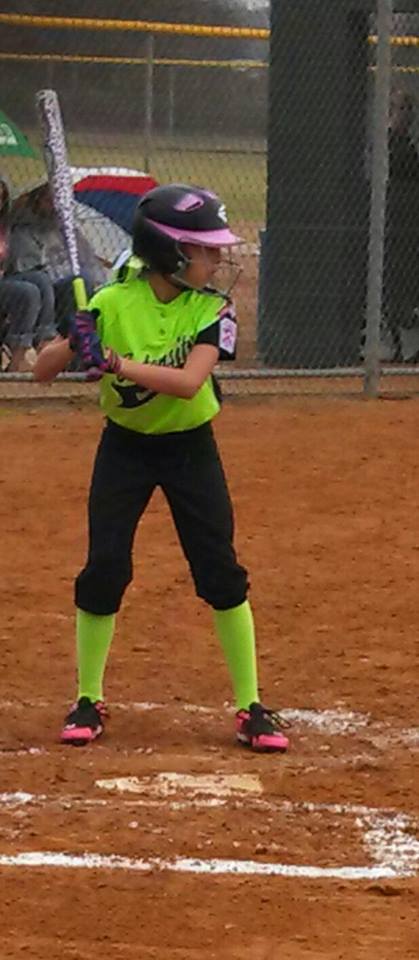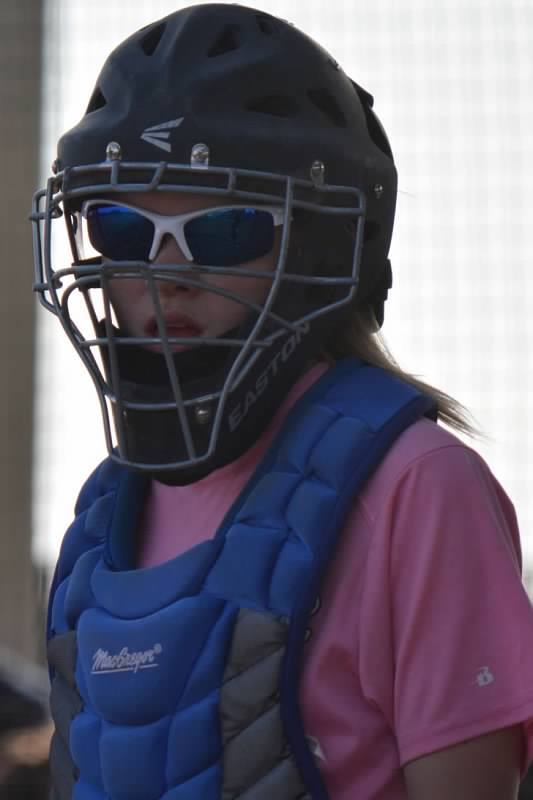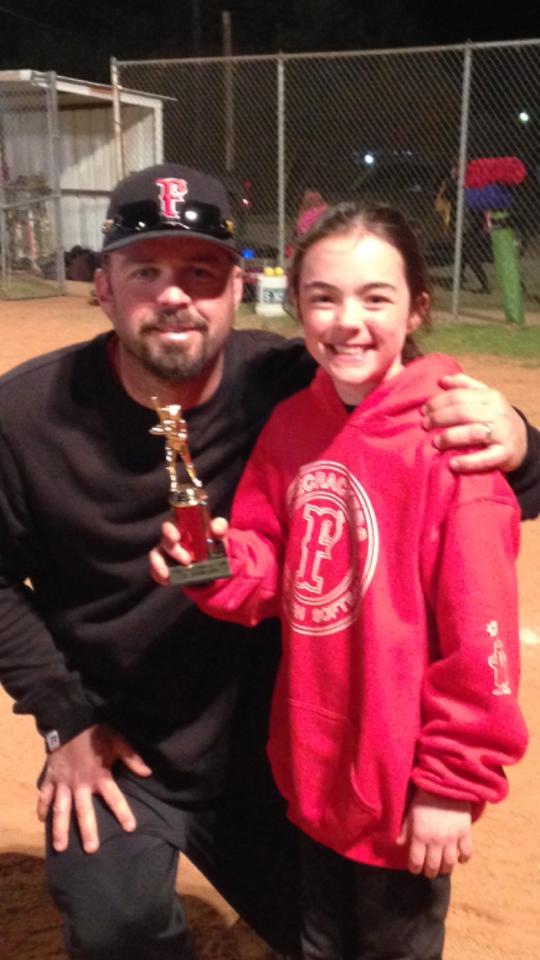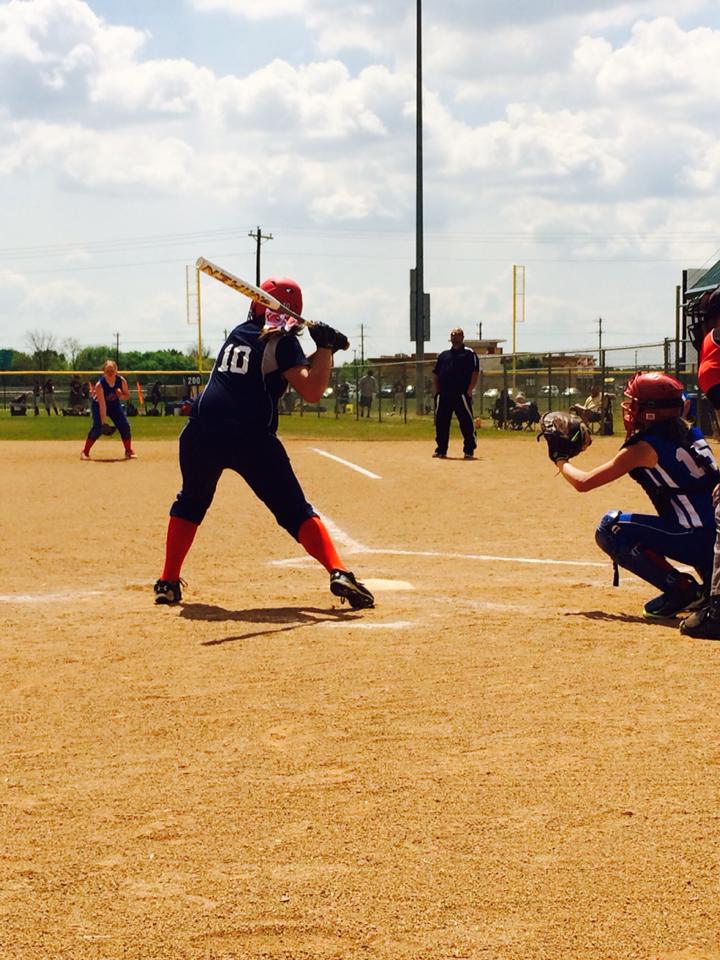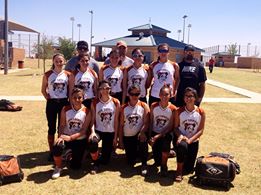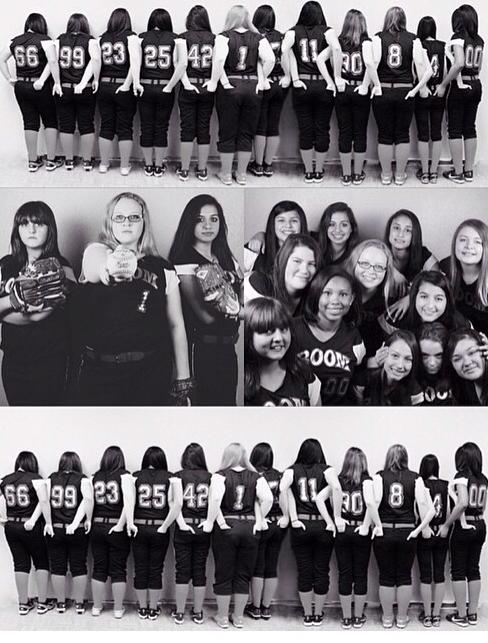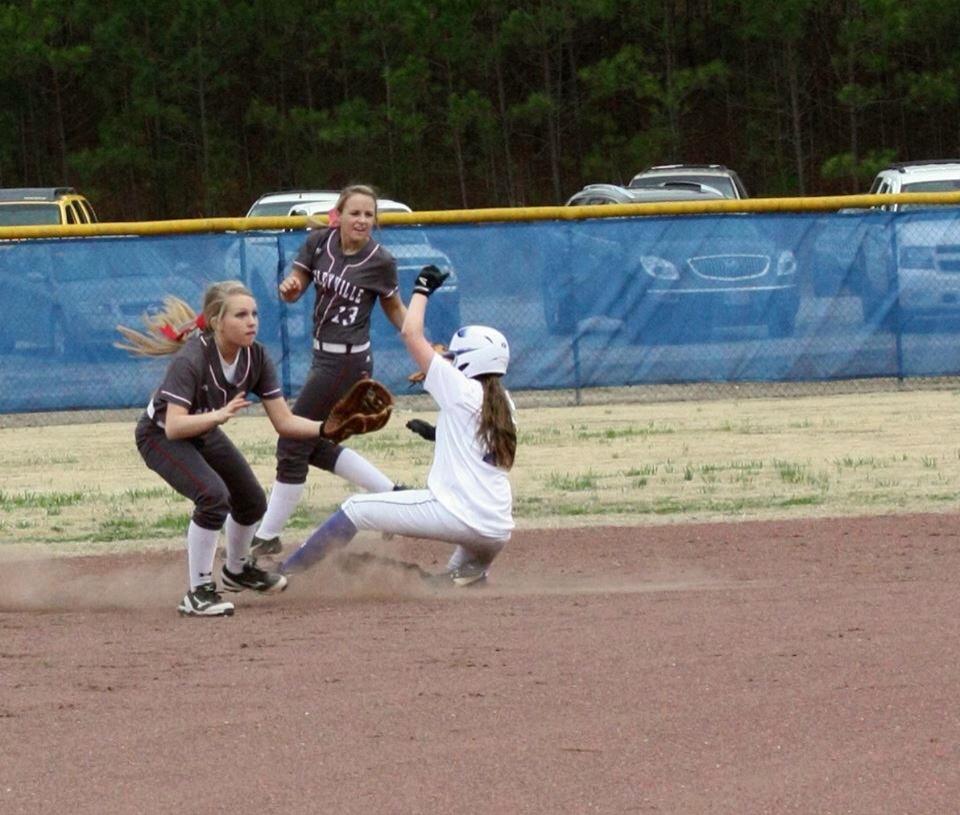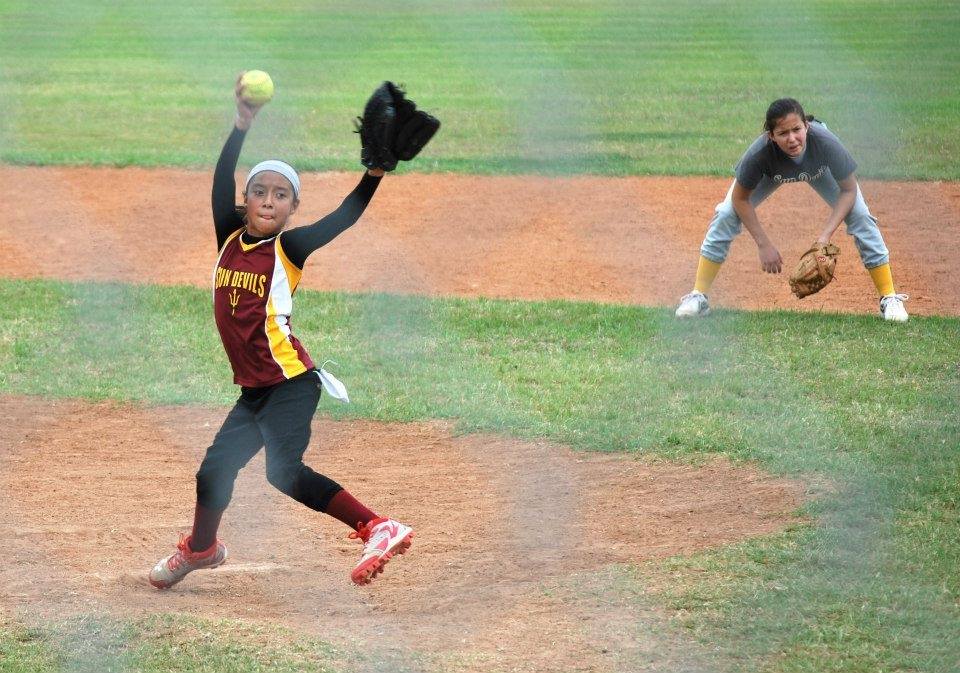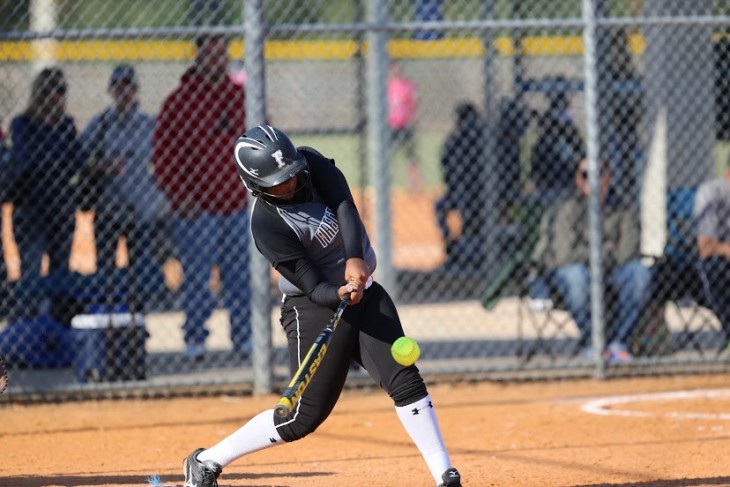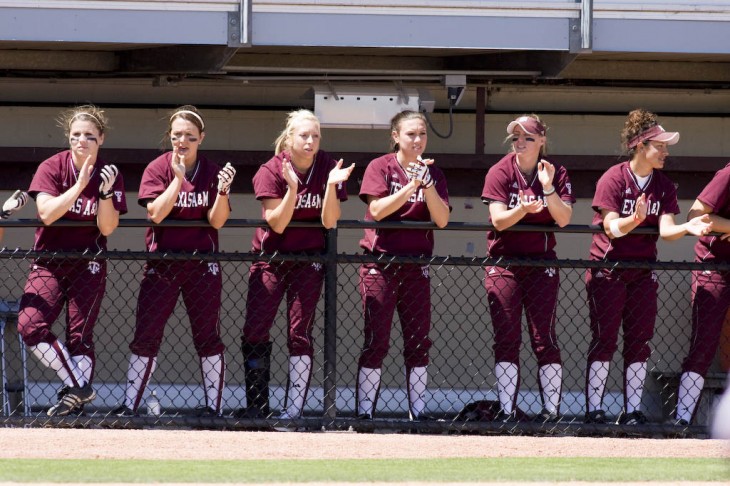As a pitcher, I’ve never understood a coach’s philosophy of NOT allowing pitchers to shake off a called pitch. I, personally, never played for a coach that said, “Never shake me off,” or “You better throw what I’m calling.” 90% of being a successful pitcher does from feeling confident…feeling good….feeling comfortable.
How do you feel those things?
By being 100% invested in WHAT you are going to throw the next pitch. The slightest bit of uncertainty will show in your pitch if you are not fully committed. (Parents, I’m SURE you know what I am talking about and you can see it from in the stands.) Also, in my mind, being able to shake off a pitch holds higher implications than just trying to get the batter out.
As a little background….The majority of the time, my dad called pitches for me for my travel ball team. Occasionally, another dad would call them who also had a pitcher on the team, but nothing beat the comfort of having my dad call for me.
In high school, my catcher and I called the game together, as well as when I got to Texas A&M.
For 8 years I got my own practice and in-game experience of calling my own pitches with my catcher. I had to think for myself through the ups and downs of a game or even in the ups and downs within an at bat. “What pitch should I throw next?” “What’s my next move?”
These are decision making skills being a pitcher teaches you. When the pressure is on, bases loaded, playing the best team you’ve played all year, tie game, one pitch can make the difference, and I got to be the one who had the last say. Pretty awesome when you think about it – giving a young woman that much power and leadership at a young age.
Of course, at first, the concept of knowing what I wanted to throw seemed like a different language to me. It was nerve racking. My brain was in constant work mode. But I learned. I distinctly remember (to this day) the feeling I would get of know exactly what pitch I wanted to throw after I delivered a pitch and my cacher threw it back to me. I was so focused and trusted myself so much that I already knew what I wanted to throw the next pitch before I even got back to the pitching rubber. If you have ever pitched and taken control of a game before, you know this feeling I am talking about. It was a feeling that ran threw me after watching the outcome of the LAST pitch, and I would know instantly what I wanted to throw next. I was going to shake off until I got THAT pitch because that’s what I had the most confidence to throw.
When you have coaches who allow you to think for yourself and help you learn HOW to think for yourself, you grow as a pitcher; you grow as a young woman.
You learn to trust your gut instinct. Being able to trust your gut is such an important trait to have in life and that gut instinct can be a pitcher’s best friend and your inner guide. That instinct does not always come naturally, it progresses and can be felt over time.
In a game, if you throw 100 pitches, that means you have 100 chances, 100 reps, of learning to feel and trust your gut instinct if you are getting the opportunity to throw your own game.
You can still throw your own game even when your coach is calling pitches from inside the dugout if he/she is the type who allows you to shake off. You’re thinking EVERY pitch, focused on one pitch at a time in what you want to throw.
As with anything in life, the more you practice calling your own game, the better you get at it. Little by little you start to trust that feeling in your stomach more.
All too often, as pitchers and as human beings, we push that gut feeling aside and try to out-think the situation. But then when we look back, it was like we had the answer all along if we would have just trusted that initial feeling/thought.
This is a large part of how a pitcher grows and matures in the circle come throughout her career.
She learns to think for herself.
She learns to make her own decisions.
She learns to eat her own mistakes.
She takes responsibility.
She becomes a leader.
She might lose the opportunity to learn these important values if she is a robot out on the field, looking at a signal, getting no feel of the situation, and just automatically doing what someone else is telling her to do without the option of shaking off – the power of saying no.
Take a step off of the softball field for and think about that- THE POWER OF SAYING NO.
Let it sink in for just a few moments.
The power of saying, “You know what, I don’t feel comfortable with that” or “I would rather not do that.”
How many times in life have you had the option of saying yes or no? MILLIONS. Every day.
Sometimes, saying no is not always easy, but it’s IMPORTANT.
You don’t always have to say yes, you can choose to say no.
A lot goes into our decision making, but practicing saying no and getting the confidence to do so on the softball field could translate to having more confidence to say no OFF of the softball field.
Think back to middle school, high school, hanging out with your friends, being confronted with situations where you have to make choices.
If you have relied on someone else to make a decision for you your whole life without the ability/care to say no (shake off) on the softball field, then why might at a high school party where there is peer pressure be any different? That kind of pressure feels just like when you are in the circle, all eyes on you, tie game, 7th inning, 2 outs. Added pressure and YOU get to pick what pitch YOU want to throw.
Pitching has the ability to teach us different versions of STRENGTH. Yes, the strength to throw hard and hit corners, but the real STRENGTH comes in being an individual in the real world who can make her own decisions.
Learning how to say “no” is hidden deep in the life lessons you learn when being a pitcher. Having the body/mental awareness to trust your gut instinct of whether a pitch feels right or wrong and whether an outside situation feels right or wrong. The more experience you gain in saying no, the easier it is to say no.
Allowing your pitchers to shake off pitches is just one small example within softball to coach these girls the way you would want them to live their lives outside of the softball field.
Give them tools to gain strength every time you are with them at practice and in games that allow them to be independent thinkers, make decisions on their own and take ownership of those decisions.
Empower them to feel peace with the decisions they make – whether it turns out being right or wrong within the game. That’s the way you learn. That’s the way you get through to them through softball, which is where they are spending the majority of their time. It’s where they can learn through trial and error the pressures and the ups & downs life will throw at you sometimes.
It means shaking off a pitch to get the pitch YOU want because you just feel it on the inside and there are specific details you have noticed that the pitch you want, if executed properly, will get the out.
Allowing a pitcher to shake off pitches is powerful BEYOND MEASURE.

